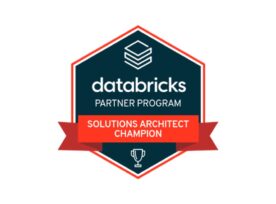Organizations are migrating from their on-premise, legacy Hadoop Data Lake to a more modern data architecture to take advantage of AI to fulfill the long-awaited promise of unlocking business value from semi- and unstructured data. Databricks tends to be the modern platform of choice for Hadoop migrations due to core architectural similarities. Apache Spark has […]
Posts Tagged ‘Databricks’
Base Is Loaded: Bridging OLTP and OLAP with Lakebase and PySpark
For years, the Lakehouse paradigm has successfully collapsed the wall between Data Warehouses and Data Lakes. We have unified streaming and batch, structured and unstructured data, all under one roof. Yet we often find ourselves hitting a familiar, frustrating wall: the gap between the analytical plane (OLAP) and the transactional plane (OLTP). In my latest […]
Agentic AI for Real‑Time Pharmacovigilance on Databricks
Adverse drug reaction (ADR) detection is a primary regulatory and patient-safety priority for life sciences and health systems. Traditional pharmacovigilance methods often depend on delayed signal detection from siloed data sources and require extensive manual evidence collection. This legacy approach is time-consuming, increases the risk of patient harm, and creates significant regulatory friction. For solution […]
Agentic AI Closed-Loop Systems for N-of-1 Treatment Optimization on Databricks
Precision therapeutics for rare diseases as well as complex oncology cases is an area that may benefit from Agentic AI Closed-Loop (AACL) systems to enable individualized treatment optimization — a continuous process of proposing, testing, and adapting therapies for a single patient (N-of-1 trials). N-of-1 problems are not typical for either clinicians or data systems. […]
A Recipe to Boost Predictive Modeling Efficiency
Implementing predictive analytical insights has become ever so essential for organizations to operate efficiently and remain relevant. What is important while doing this though is to be agile and adaptable. This is much so because what holds valid for a period can easily become obsolete with time. And what is characteristic of a specific group […]
Salesforce to Databricks: A Deep Dive into Integration Strategies
Supplementing Salesforce with Databricks as an enterprise Lakehouse solution brings advantages for various personas across an organization. Customer experience data is highly valued when it comes to driving personalized customer journeys leveraging company-wide applications beyond Salesforce. From enhanced customer satisfaction to tailored engagements and offerings that drive business renewals and expansions, the advantages are hard […]
Databricks Lakebase – Database Branching in Action
What is Databricks Lakebase? Databricks Lakebase is a Postgres OLTP engine, integrated into Databricks Data Intelligence Platform. A database instance is a compute type that provides fully managed storage and compute resources for a postgres database. Lakebase leverages an architecture that separates compute and storage, which allows independent scaling while supporting low latency (<10ms) and […]
Celebrating Perficient’s Third Databricks Champion
We’re excited to welcome Bamidele James as Perficient’s newest and third Databricks Champion! His technical expertise, community engagement, advocacy, and mentorship have made a profound impact on the Databricks ecosystem. His Nomination Journey Bamidele’s journey through the nomination process was vigorous. It required evidence that he has successfully delivered multiple Databricks projects, received several certifications, […]
Unlocking Business Success with Databricks One
Business users don’t use notebooks. Full stop. And for that reason, most organizations don’t have business users accessing the Databricks UI. This has always been a fundamental flaw in Databricks’ push to democratize data and AI. This disconnect is almost enshrined in the medallion architecture: Bronze is for system accounts, data scientists with notebooks use […]
Understanding Clean Rooms: A Comparative Analysis Between Databricks and Snowflake
“Clean rooms” have emerged as a pivotal data sharing innovation with both Databricks and Snowflake providing enterprise alternatives. Clean rooms are secure environments designed to allow multiple parties to collaborate on data analysis without exposing sensitive details of data. They serve as a sandbox where participants can perform computations on shared datasets while keeping raw […]
Transforming Your Data Strategy with Databricks Apps: A New Frontier
I’ve been coding in notebooks for so long, I forgot how much I missed a nice, deployed application. I also didn’t realize how this was limiting my solution space. Then I started working with Databricks Apps. Databricks Apps are designed to extend the functionality of the Databricks platform, providing users with enriched features and capabilities […]
Exploring the Free Edition of Databricks: A Risk-Free Approach to Enterprise AI
Databricks announced a full, free version of the platform at the Data and AI Summit. While the Free Edition is targeted to students and hobbyists, I also see opportunities where enterprise architects can effectively evangelize Databricks without going through Procurement for a license. Choosing the right platform to manage, analyze, and extract insights from massive […]










